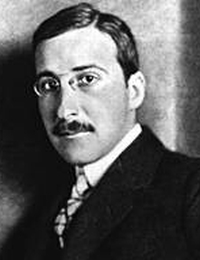Stefan Zweig's posthumously published Chess Story is the tale of a legendary chess match played on an ocean liner leaving Nazi-occupied Europe. The world champion and a man who attained mastery of chess during a harrowing ordeal are locked in a battle that becomes far more than merely a game. Gripping and visceral, this unforgettable novella powerfully renders a psychological condition nearly impossible to convey in words. Ulrich Baer's lively new translation beautifully captures Zweig's nuanced mix of introspection and suspense. Includes "My Last Conversations with Stefan Zweig" by Ernst Feder and a detailed biographical timeline.
Hinweis: Dieser Artikel kann nur an eine deutsche Lieferadresse ausgeliefert werden.
Hinweis: Dieser Artikel kann nur an eine deutsche Lieferadresse ausgeliefert werden.









